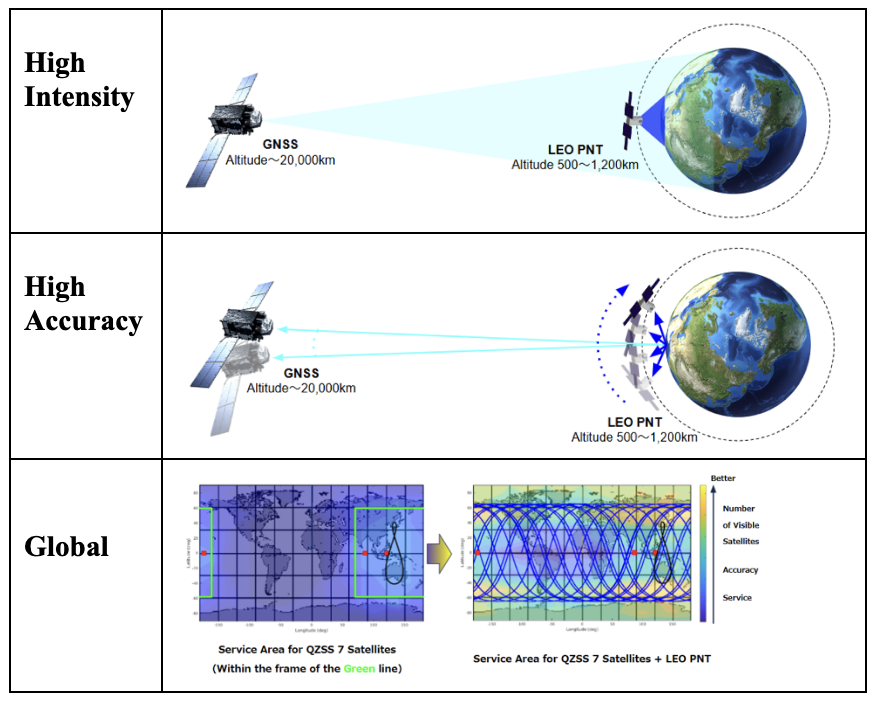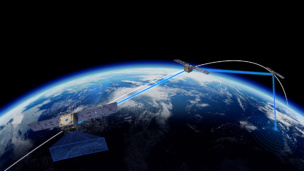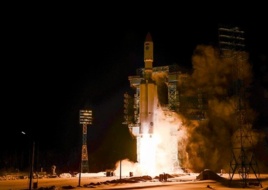JAXA tapped ArkEdge Space, a Tokyo-based nanosatellite company, to study the feasibility of putting a Position, Navigation, and Timing (PNT) constellation in LEO, the company announced yesterday.
ArkEdge has won multiple JAXA contracts and has worked on a navigation and comms system for the Moon. In this contract, the company is hoping to show that operating a Global Navigation Satellite System (GNSS) closer to Earth can vastly improve the terrestrial applications of PNT data.
The theory: While conventional GNSS satellites operate ~20,000 km over Earth, the proposed PNT constellation would fly substantially lower, between 900-1,200 km. ArkEdge expects this proximity would deliver a wide range of benefits:
- Intensity: A LEO PNT constellation would send stronger signals than conventional GNSS PNT satellites to provide more reliable positioning information that’s less prone to jamming and spoofing.
- Accuracy: Satellites in LEO experience a more dramatic angle of change in location over time. To the positioning signal receiver back on Earth, this means that data will be faster and more accurate.
- Global coverage: A constellation in LEO can cover and revisit a larger surface area of the globe than those at higher altitudes, and coverage can expand quickly if new satellites are deployed.
Methods: ArkEdge is undertaking a broad study to show the benefits of a LEO PNT system, and examine what it might look like when it comes time to test it.
- The company will assess the trade-offs of having a LEO PNT system in the form of a constellation, and evaluate the GNSS signal generated by satellites in LEO.
- ArkEdge will also attempt to determine the signal format and frequency bands the constellation should use, and lay out a conceptual design of the eventual PNT demonstration mission, proposing the number of satellites, their design, and where they should fly in orbit.
Bigger picture: Ultimately, the LEO PNT system aims to support terrestrial industries as they move toward greater automation. If the constellation provides more accurate PNT data as expected, it would help autonomous cars and agricultural machines to be safer and more effective, while increased reliability and accuracy would unlock new use cases for PNT data on Earth and in orbit.





